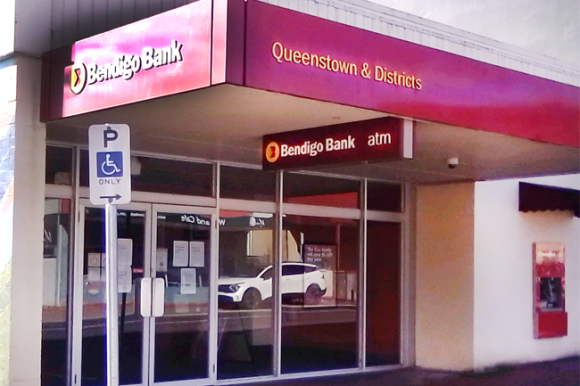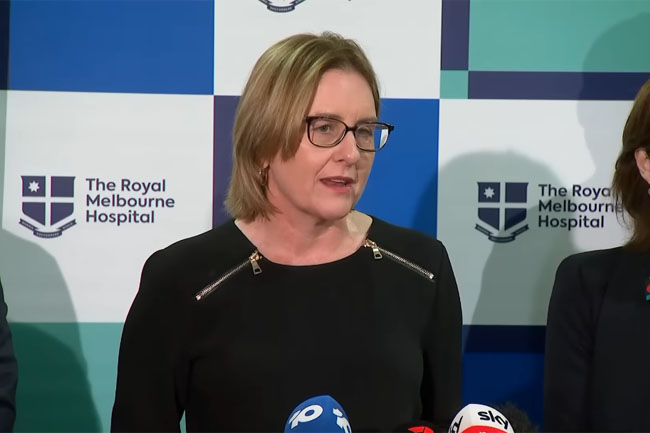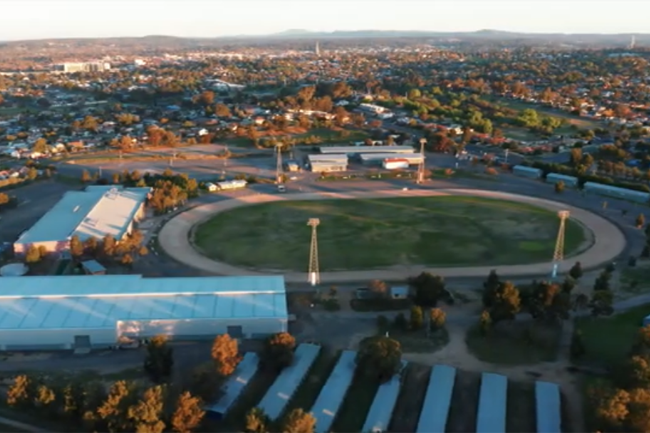There are fatal flaws in the Federal Government’s draft regulations mandating cash acceptance and they can be traced back to PM Anthony Albanese's refusal to respond to Senate recommendations to fix the banking crisis in regional Australia.
The first two recommendations from the Senate Inquiry into regional bank closures – to protect cash access and begin steps to re-establish government banking services – were never meant to be rolled out in isolation, yet a Treasury official admitted in Estimates earlier this month that the committee’s report had been used as the basis of the “initiatives” that the Government has announced since the Inquiry wound up in May 2024.
The cash mandate would have to be considered one of these.
Risky regulation
While a good idea in principle, the problem is that the regulations have been written in such a way that, without restoration of banking services, it is highly likely businesses in bankless towns will be eligible for exceptional circumstances exemptions on the basis of difficulties in obtaining cash floats, depositing business takings and the cost of maintaining cash service.
An exemption would give supermarkets and fuel outlets express permission from the Government to refuse cash, rather than the current situation, where refusal is more complex and responsibility lies with the business owner.
The Government was warned this would be an issue by MGA Independent Businesses Australia (MGAIBA) – formerly Master Grocers Australia Ltd – in the first round of consultation earlier this year.
In the group's submission, MGAIBA chief executive David Inall (who recently announced his departure as CEO) said:
There are challenges associated with managing (depositing, withdrawing, general security) cash in rural and regional areas relative to urban-based businesses.
This challenge is exacerbated in those instances where there is no bank in town, or any banking services that remain are offered with reduced services, or the bank is not one where you typically conduct your business banking. Furthermore, in these circumstances, there are challenges in terms of managing the cash float that is required to facilitate seamless business operations.
Security services that transport cash are expensive and in many instances, are no longer operating. Use of ATMs can be expensive. They can be unreliable and difficult to service in regional locations. In instances where there are no banking facilities in town, cash must be moved via unsecure means to larger regional centres.
Reported comments made by NAB head Andrew Irvine at an event during the first round of consultation indicate that cash is a factor in why banks bail on regional towns:
The cost of cash is real. Think about it, you’ve got two guys in an armoured car driving around, with guns... a country that’s thousands of kilometres in size moving cash.
There are 20 or 30 depots in this country moving and sorting and doing all that stuff with cash and physical cash, including coins, and coins in barrels are heavy. None of that is visible to people, but that all costs money. So the question, of course, is who’s going to pay for that?
More to the point, Mr Irvine, who pays for that in all the towns that NAB, ANZ, the Commonwealth, Westpac and now Bendigo have left without a bank?
The draft recommendations acknowledge this point and say exceptions would be considered if accepting cash payments meant the price of goods would have to be hiked to cover the cost of cash delivery.
Information access
With only 14 days to research, write up and allow time for readers to consider information, it has not been easy to report accurately on the implications of this mandate.
Treasury has been asked whether difficulty accessing banking services would be considered an “exceptional circumstance” (with the situation in Queenstown, Tasmania, where Bendigo Bank recently closed the town’s last bank, given as an example), but to date has provided no response.
Journalists have also been hampered by restricted access to round one submissions, with just 52 of the 4,000+ received published and none from individuals with lived experience or expertise on this subject.
What can be reported is that:
- the cash mandate will now only apply to supermarkets and fuel outlets after the Government dropped its confusing list of “essential services”;
- small businesses will still be exempt based on income;
- individual franchisees will have income assessed at group level;
- cash payments will be capped at $500; and
- any affected business may be granted an exemption for exceptional circumstances.
In the time available, it has been impossible to get a full picture of how this will play out across regional Australia, but what is known is that the small business exemption will mean one of the places that the Government will not ensure the right to pay for food and groceries with cash is protected, is in Aboriginal communities in Far North Queensland.
The Senate report into regional bank closures made special mention of the importance of cash in Indigenous communities.
Verdict on the draft
In these circumstances – with its small business and exceptional circumstances exemptions and nothing being done to put banks back into regional communities – the cash mandate has the potential to accelerate the demise of cash, rather than support its continued use.
As reported eight months ago in The Regional, there is a big difference between being given a nod from the Government to refuse cash and the less palatable option of putting up a sign and asking frontline staff to explain how purchase contracts work to irate customers 20 times a day, at the risk of being abused.
In an alternative reality – where the Government had respected the work put into the Senate Inquiry and accepted all the recommendations that members of its own party had helped craft – the proposal would help to meet the desired outcomes.
As it stands, this has the potential to work against everyone except those who stand to benefit from the demise of cash.
The draft regulations in question can be viewed HERE. Treasury has invited public submissions — although Assistant Treasurer Daniel Mulino has said only industry feedback will be considered.
Questions are being asked by many whose submissions have not seen the light of day as to whether only industry feedback has been considered from the beginning of this process.
The closing date for lodgment is this Friday, 31 October.
Comment on the Senate Inquiry
The Government's response to the final report from the Senate Standing Committee on Rural and Regional Affairs and Transport Inquiry into regional bank closures is 430 days overdue as of 26 October 2025.
The only way the cash mandate should be let through the process required to bring it into law is if the Albanese Government agrees to the eight recommendations from the Inquiry, starting with the commissioning of an expert panel to investigate the feasibility of establishing a publicly owned bank.
Dale Webster is an inaugural recipient of a Walkley Foundation Grant for Freelance Journalism on Regional Australia. This article was originally published on The Regional and has been republished with permission. You can follow Dale on Twitter @TheRegional_au.
Support independent journalism Subscribe to IA.















